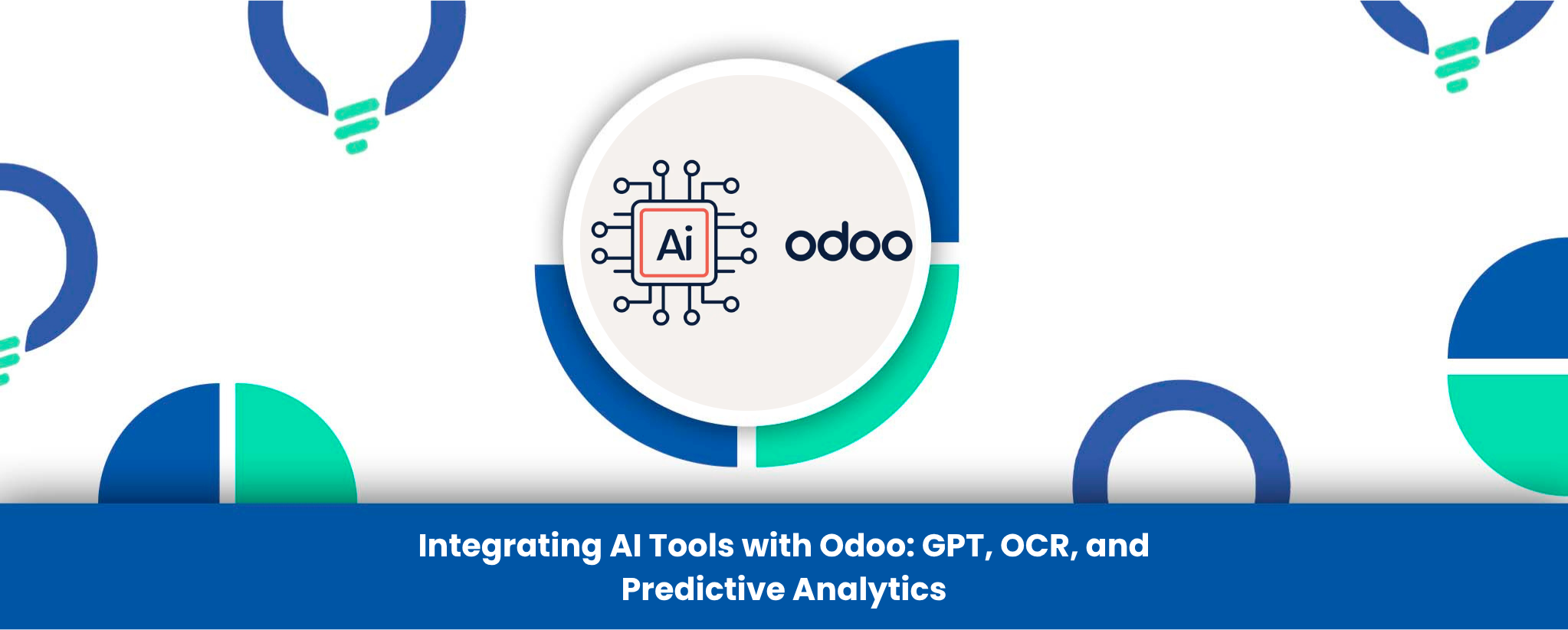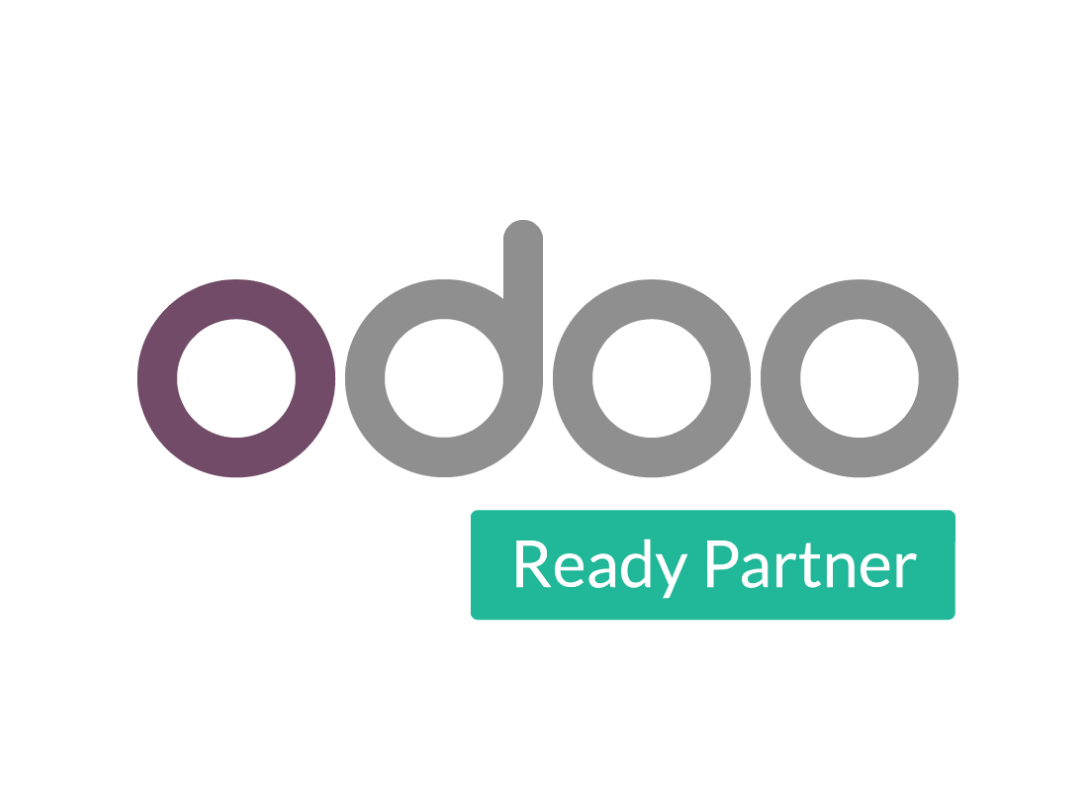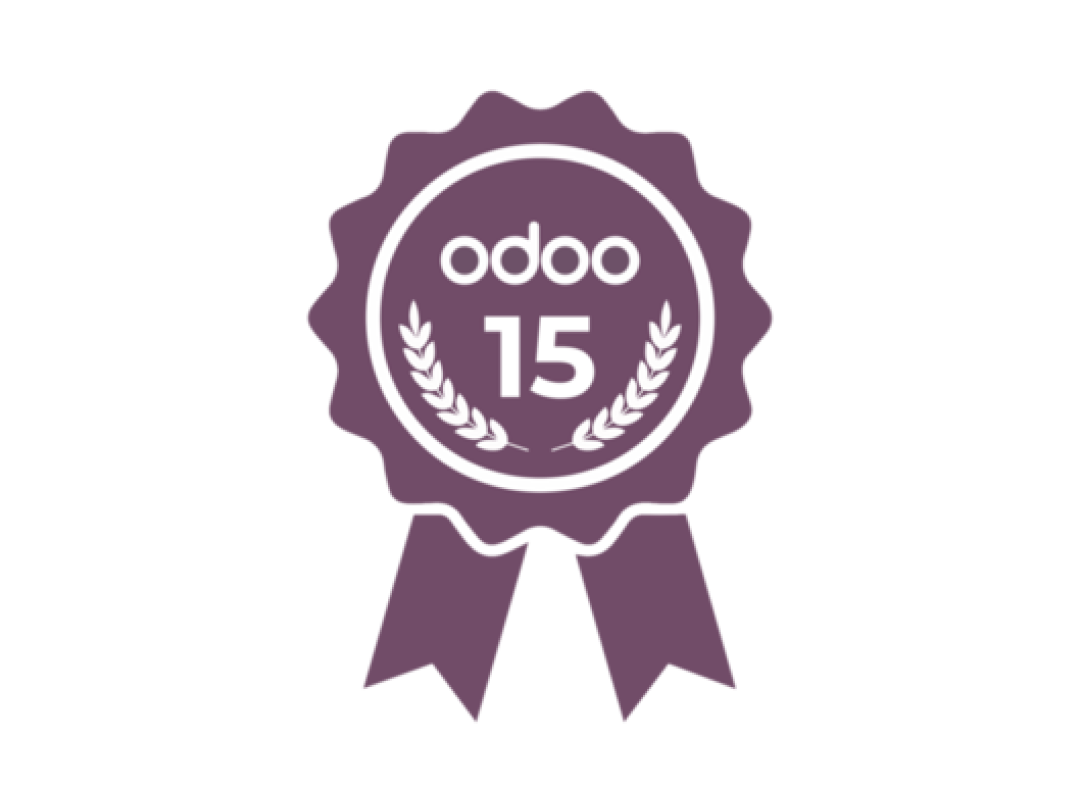As enterprise automation evolves, integrating artificial intelligence into ERP systems is no longer optional—it’s essential. AI integration in Odoo, one of the most flexible capabilities within Odoo 18, now supports advanced features that elevate its core functionality across departments. From natural language processing to real-time forecasting in Odoo and smart data processing in Odoo, this powerful shift can drastically improve efficiency, accuracy, and decision-making across your business.
GPT Integration with Odoo: Conversational Intelligence for ERP
GPT integration with Odoo introduces a new layer of conversational automation. Whether it’s assisting users with navigating modules, summarizing CRM activity, or auto-generating product descriptions, GPT enhances the way users interact with data.
ChatGPT with Odoo backend can be implemented using the OpenAI API and connected via Python or RESTful webhooks. You can build an AI chatbot for Odoo within the website or backend interface that responds to user queries using natural language. This is especially useful in customer service, HR portals, or internal training modules.
For instance, Odoo GPT use cases include suggesting lead actions, summarizing call notes, or generating personalized replies—saving time while enhancing engagement.
From a development standpoint, GPT can be triggered using server actions or controller routes. These AI tools for Odoo even integrate with Odoo Studio, enabling non-developers to configure conversational flows—further enabling Odoo AI-driven decision-making.
OCR Automation in Odoo: Intelligent Document Processing
Odoo OCR automation transforms how businesses handle unstructured documents like invoices, POs, and IDs. OCR tools such as Tesseract or Google Vision API integrate into Odoo workflows to scan and extract structured data.
Especially useful for OCR invoice scanning Odoo, these tools convert scanned documents into draft bills by extracting vendor details and item lines—automating finance workflows and enabling intelligent document processing in Odoo.
Typically, this involves a custom Python script that scans and feeds the data into (account.move). It’s a core part of automated workflows with Odoo AI, streamlining accounting with minimal manual input.
Predictive Analytics in Odoo: Smart Forecasting for Smarter Planning
Predictive analytics in Odoo lets businesses plan ahead using historical data. With embedded machine learning in Odoo 18, you can forecast trends in sales, HR, inventory, or finance, ensuring a proactive rather than reactive approach.
Use predictive sales analysis Odoo to estimate win probabilities, suggest next steps, and generate AI-powered reporting in Odoo dashboards that reflect real-time performance. Inventory managers can avoid overstock or shortages using predictive reorder suggestions.
Technical teams can integrate external models through REST APIs or embed them directly in modules—powering real-time forecasting in Odoo that supports agile, intelligent planning.
Architectural Considerations for Odoo AI Integration
Successfully deploying Odoo AI integration involves careful attention to infrastructure:
- Data Accuracy: Training reliable models requires clean, structured data in your Odoo database.
- Scalability: Running AI tools for Odoo like GPT may demand GPU-powered hosting or Docker containers on cloud platforms.
- Security: Especially with finance or customer data, AI functions must align with GDPR and access control policies—an essential for safe Odoo ERP automation using AI.
You can modularize your architecture so that GPT integration with Odoo, OCR processing, and prediction engines run as independent microservices—enabling smoother updates and scaling.
Business Use Cases: Where AI Meets ERP Value
Here’s how AI in Odoo ERP creates cross-functional impact:
- Customer Support: Use AI chatbot for Odoo to automate support through Helpdesk or Website Chat.
- Finance: Leverage OCR invoice scanning Odoo to cut down AP data entry.
- Sales: Apply predictive sales analysis Odoo to improve pipeline forecasting.
- HR: Use machine learning in Odoo 18 to recommend candidates based on job fit and past hiring trends.
These cases show how Odoo ERP automation using AI turns lagging metrics into proactive insights.
Conclusion
AI isn’t just futuristic—it’s already transforming how businesses operate. With tools like GPT, OCR, and predictive analytics in Odoo, Odoo AI integration turns your ERP into a real-time, smart decision engine.
Whether you’re looking to automate documents, forecast demand, or scale interactions with an AI chatbot for Odoo, embracing these technologies helps automate workflows with Odoo AI, unlock new efficiencies, and future-proof your digital strategy.




